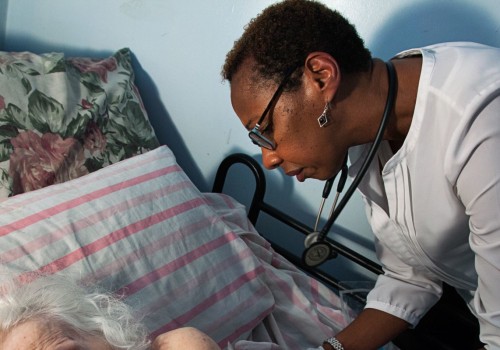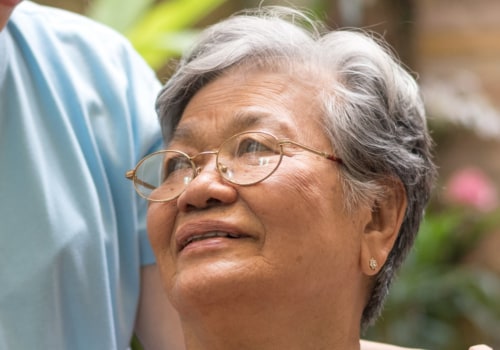Palliative care is for any patient with a chronic, life-limiting illness and can be provided during the course of an illness. Hospice is a type of palliative care for patients who are at the end of life and want to focus only on quality of life. A misconception about hospice care is that care is only for the last days of life. The truth is that hospice patients can receive care for six months or more, depending on the course of their particular illness.
Patients benefit from personalized nursing care, medical equipment and supplies related to their terminal illness. Family members receive emotional and spiritual support, continuing education about the disease process and changing care needs, assistance in navigating community resources, and grief support after the death of their loved one. Hospice eligibility requires two doctors to certify that the patient has less than six months to live if the disease runs its usual course. Palliative care is initiated at the discretion of the physician and the patient at any time, at any stage of the disease, terminal or not.
You may think that palliative care is only for people with a terminal illness, but that's not entirely true. Anyone diagnosed with a chronic and serious illness can benefit from palliative care to improve their quality of life. Supportive palliative care starts from day one. Hospice care is suitable for patients facing life-limiting diseases or conditions.
Its approach is holistic; it addresses the patient's physical, emotional, social and spiritual needs. Hospice care is for people nearing the end of life. Services are provided by a team of health professionals who maximize the comfort of a terminally ill person by reducing pain and addressing physical, psychological, social and spiritual needs. To help families, hospice care also provides counseling, respite care, and practical support.
While the time of death is difficult to predict, hospices are responsible for accepting patients who survive their six-month prognosis. Alternatively, the patient's own physician may continue to perform this role, in coordination with the hospice team and their care plan. If you or a family member is terminally ill and have exhausted all treatment options, you may want to consider hospice care. The Federal Government arbitrarily restricts hospice care to those whose death is six months away, or earlier.
After talking with her husband, Dolores changed her mind about the use of palliative care and left to start dialysis, hoping that one day she would have her first great-grandchild. If you don't receive hospice care at a dedicated facility, hospice staff will make regular visits to your home or other environment. Hospice programs are great for older people in advanced stages of non-curable, very fragile or extremely elderly illnesses. The main difference between hospice and “regular health care” is that care is no longer focused on “curing the elderly”.
For information about hospice programs, talk with doctors, nurses, social workers, or counselors, or contact your local or state office for the elderly. Most hospice patients are Medicare participants with immediate access to a hospice benefit that minimizes out-of-pocket costs in the last months of life. In addition to improving quality of life and helping with symptoms, palliative care can help patients understand their medical treatment options. To fulfill its mission, the Foundation conducts public education campaigns and encourages research that benefits hospice consumers.
Like palliative care, hospice provides comprehensive comfort care and support to the family, but in hospice, attempts to cure the person's illness stop. Hospice Programs Nationwide Face Decline in Service Use Due to Government Restrictions. .












